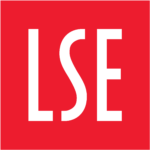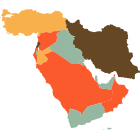Tackling Inequality in Humanitarian Situations: Social Media and support in cities in the Middle East, South Asia, and Africa
Background
In consortium with Urban-A, Action Aid, and Oxfam, this project studies the types of information accessed by people based on their socio-economic, migrant, and displaced identities, and how this information links with support provided by the UN, (I)NGOs, local authorities, and civil society actors in Tripoli (Lebanon), Patna and New Delhi (India), and Kampala (Uganda).
The project explores the complex relationship between social media, humanitarianism, and inequality in urban settings. It highlights how social and communication media can both alleviate and exacerbate inequalities, impacting access to essential resources like jobs and housing. The research aims to understand the role of social media during crises, portraying it as both a connector and a divider within communities.
By examining these dynamics, the project seeks to inform policy interventions that enhance rapid responses to urban shocks and improve the support mechanisms for marginalized groups in urban areas.
Triangle’s Assignment
Triangle was commissioned to conduct a comprehensive evaluation of social media and support mechanisms in urban areas. In Tripoli, Triangle staff surveyed local residents and Syrian refugees to capture a snapshot of the community’s socio-economic conditions. A carefully structured questionnaire was developed to resonate with the daily experiences of respondents. Surveyors trained by Triangle acted as cultural communicators, facilitating open dialogue and gathering rich, contextual data.
The team organized the survey process, managed logistics, and ensured respectful interactions. Semi-structured interviews complemented the quantitative survey data, providing deeper insights into lived experiences. Detailed data analysis and processing ensured research integrity. Triangle also managed communication materials to articulate project objectives clearly to stakeholders and coordinated various project phases to generate a comprehensive understanding of urban inequality and its impact on residents.
Objectives
The assignment had several key objectives:
- To explore the types of information accessed by individuals from diverse socio-economic backgrounds, including migrants and the displaced.
- To understand how information interacts with resources provided by humanitarian and civil bodies.
- To scrutinize the role of social media in urban settings, especially in crisis and displacement contexts.
- To examine the unique challenges faced by the urban poor, migrants, and refugees in accessing jobs, housing, and essential services.
- To investigate the dichotomy of social media as both a connector and a divider within communities.
- To inform policy interventions that can improve rapid response to urban crises.
Research Approach & Methodology
Triangle employed a comprehensive mixed-method approach to gather data for the assignment. The methodology included:
- Survey Implementation: Conducting surveys with local residents and Syrian refugees in Tripoli to capture a snapshot of their socio-economic conditions.
- Questionnaire Development: Designing questionnaires that resonate with the daily experiences of respondents, ensuring relevance and comprehensiveness.
- Training Surveyors: Training surveyors to act as cultural communicators, facilitating open dialogue and gathering rich, contextual data.
- Field Coordination: Organizing the survey process, managing logistics, and ensuring respectful interactions with respondents.
- Semi-Structured Interviews: Conducting semi-structured interviews to complement quantitative survey data, providing deeper insights into lived experiences.
- Data Analysis: Meticulously analyzing and processing data to ensure the integrity of research outputs.
- Communication Management: Managing all communication materials to clearly articulate the project’s objectives to stakeholders.
- Cross-Phase Coordination: Coordinating across various phases of the project to generate a comprehensive understanding of the social fabric and urban inequality impacts.
Project:
Tackling Inequality in Humanitarian Situations: Social Media and support in cities in the Middle East, South Asia, and Africa – LSE

Duration:
June 2021 – June 2023
Middle East, South Asia, and Africa
